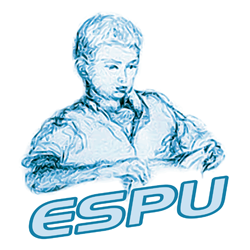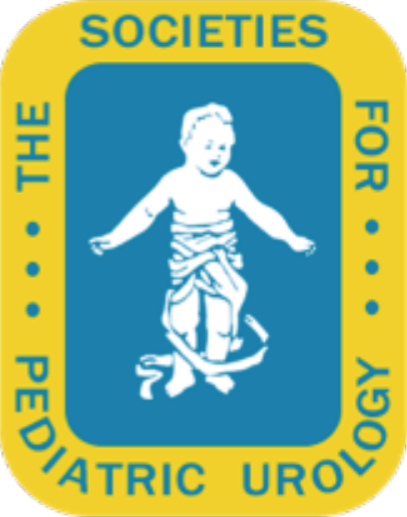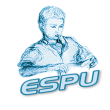 |
 |
ESPU - SPU Consensus statement 2020
Management of Differences of Sex development (DSD)
Differences of sex development (DSD) represent a very diverse and broad group of a large number of congenital conditions in which development of chromosomal, gonadal or anatomical sex is atypical. Currently, there are ongoing debates from various medical and non-medical groups regarding the optimum management of affected individuals, particularly regarding surgical intervention. There is, however, little evidence regarding the long-term impact of no treatment for the affected individuals.
The aim of this consensus document is to state the position held jointly by the two large societies within Paediatric Urology: the European Society of Paediatric Urology (ESPU) and the Societies for Pediatric Urology (SPU) and provide some clarity and guidance for our members, particularly those who have a special interest in the management of these patients.
Terminology
The 2006 Chicago Consensus Statement provided an umbrella term of DSD. Since that time, numerous papers have been published underlining lack of consensus in its use. Some patients and families prefer terms like intersex, others prefer DSD, while most prefer to be identified by the individual condition.
We do not believe there is a perfect universal term. Placing everyone under a single umbrella term is risky and because it is so broad, it does not assist in clinical care. In fact, it lessens our ability to provide individualized care for the patient. Therefore, we should carefully consider whether the term DSD, intersex or any umbrella term should be used at all.
This is particularly true for 46,XX females with CAH and 46,XY males with hypospadias, where discordant gender identity is rarely an issue. Multiple studies demonstrate that the majority of patients and parents affected by these conditions prefer the use of their specific diagnosis rather an umbrella term such as DSD or intersex, which they find confusing and stigmatizing. Therefore, if an umbrella term is to be used, strong consideration should be made for separating them from the larger group.
Multidisciplinary individualized patient- and family-centered care
We support multidisciplinary individualized patient- and family-centered care of patients with DSD conditions. This is a life-long process encompassing genetic, medical, developmental, psychological, sexual, reproductive and social issues which become more prominent at particular times in a patient’s life. A multidisciplinary team typically includes experts in the fields of pediatric and reproductive endocrinology, genetics, urology, gynecology, psychiatry and cytogenetics with close involvement of family. Children with DSD conditions should be involved to the extent possible in consultation with their parents.
This approach supports patient and family empowerment and full disclosure to assist patients and families in making good treatment decisions. It opposes secrecy, shame and stigmatization and facilitates physical, psychological and social welfare of these patients.
Fostering health
A proposal to restrict surgical interventions in this population to emergencies only goes against the World Health Organization definition of health as more than merely the absence of disease. Health is a much broader concept, including physical, mental, and social domains. This especially applies to children, as favourable physical, social and emotional conditions are critical factors for their optimal growth and development. This enables them to reach their full potential as adults. Social and emotional interactions with the parents, the most important adults in a child’s life, form the basis for their child’s future. The treatment of children with DSD conditions is best delivered in a patient- and family-centered multidisciplinary setting, in an atmosphere based on openness, commitment and trust.
We, physicians, who daily take care of children with a variety of congenital conditions, like their parents, are committed to the current, as well as the future, health and well-being of all children entrusted to our care. Parents implicitly act in the best interest of their children and should be respected as their representatives. Parents should not be set aside by prohibition regulations regarding the well-informed decisions they make on their children’s behalf.
Individualized, not mandated, management
It is ironic that the current controversy occurs at a time when we have made great strides in medical and surgical advances. Mandating care, such as prohibitions of particular treatments like surgery, contradicts the atmosphere of equality, openness and trust essential to shared decision making. It is actually a step backwards in the evolution, rather than forwards.
While significant strides in the care of these individuals have been made with growing scientific knowledge, we recognize many unknowns remain. More research is needed, and we support efforts to fund and conduct such research.
Nowhere in healthcare is a “one size fits all” approach reasonable or beneficial. This is particularly worrisome when multiple vastly different diagnoses are considered for a uniform treatment. A “one size fits all” treatment does not exist for patients with DSD conditions.
Rather, every child deserves unique attention and alternatives, and ultimately, we affirm the rights of parents to make medical decisions for their children based on their review of all available management options, including observation, pharmacotherapy or surgery, with full disclosure of the potential risks and benefits of these options. Patients and families benefit from a holistic approach that presents the pros and cons of various options, including surgery, and empowers families to make decisions in their child’s best interest.
We are not for or against surgery, rather support individualized attention and alternatives.
Management should be comprehensive and well-balanced to a particular patient’s needs. It needs to take into account all medical, psychological, social and cultural considerations of the patient and their parents and care givers.
We recommend all of our patients seek input from advocacy groups, as they can offer important insights.
Conclusion
Complex medical problems should remain in the purview of the family and the expert medical team and thus should not be legislated. Banning surgery for all patients with DSD conditions is equally as harmful to individualized care as demanding surgery for all patients with DSD conditions. Clearly, neither approach is correct.
Important literature informing this document
Lee PA, Houk CP, Ahmed SF, Hughes IA. International Consensus Conference on Intersex organized by the Lawson Wilkins Pediatric Endocrine Society and the European Society for Paediatric Endocrinology. Consensus statement on management of intersex disorders. Pediatr 2006;118:e488-e500.
Mouriquand PD, Gorduza DB, Gay C, Meyer-Bahlburg HF, Baker L. et al. Surgery in disorders of sex development (DSD) with a gender issue: If (Why), When and How? J Pediatr Urol 2016;12:139-149.
Cools M, Nordenström A, Robeva R, Hall J, Westerveld P, et al. Caring for individuals with a difference of sex development (DSD): a consensus statement. Nat Rev Endocrinol 2018;14:415-429.
Wolffenbuttel KP, Hoebeke P. Open letter to the council of Europe. J Pediatr Urol 2018;14:4- 5.
Authorship:
This draft document has been prepared by
Ramnath Subramaniam, Secretary of ESPU (Leeds, UK) together with Konrad Szymanski (Indiana, USA) and Alexander Springer (Vienna, Austria)
With input from the following Senior Clinicians from USA and Europe with expertise in management of DSD:
Earl Cheng (Chicago, USA); Richard Rink (Indiana, USA), Katja Wolffenbuttel (Rotterdam, Netherlands) and Piet Hoebeke (Ghent, Belgium)
We thank Anthony Herndon, Secretary SPU for facilitating the process and communication between the two societies, ESPU and SPU.
